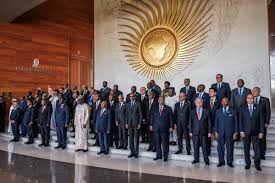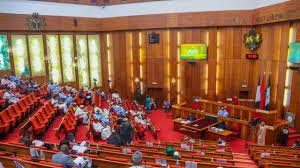Digital Innovations:
Digital innovation involves the development and deployment of new digital technologies to improve organisational processes of entities, including improving the ways and manners by which systems andprocesses function and operate in order to maximise benefits of and from the operations of the entities. They are often software and internet and web-based applications and technologies. Essentially, therefore these are technologies developed, designed and deployed to improve work, the work process, and the organisation of the work process. Therefore, ensuring that these improvements will be beneficial to the worker, and the working class will require the active organised self-agency of the worker.
Technological Advancements:
Technological advancements are improvements and advances in technology in general. It can be said that there is a general tendency towards improvements in technology, and advances in new technologies that are deployed in the process of work.
From the dawn of humanity, from the earliest times the human species have found that it has had not only to develop and deploy tools and technologies in the process of work, but also that it has to be engaged in a process of constantly improving these technologies and tools, and developing and deploying even new technologies and tools in the work process.
From the hunter-gatherer society, to the present modern capitalist civilisation, this trend to improve the tools for working, the process of work, and the organisation of the work process has been ever present, and has been the principal basis and driver of the development of humanity and the human civilisation. Take the provision of shelter for instance, from fashioning shelter from wood, leaves, grasses, and hiding in caves, through building thatched huts, mud huts, brick houses, to the skyscrapers of huge mansions of the 21st century, the tools and the technologies to fashion shelter have improved over several thousands of years.
Humanity has moved from the using animals to pull ploughs to the development and deployment of giant tractors and combined harvesters; just as humanity has moved from using animals for transport through animal drawn wheeled carriages, the locomotive [train], the first automobiles, to the modern airplanes, modern speed trains, modern automobiles, and even to the rockets for space travel; or from rough rafts, through canoes, motor powered boats, to the modern ships and ocean liners of today, for water transport.. To support transportation and the changes in transportation, not only the vehicles, but also support systems for the vehicles, roads, airports, seaports, waterways, among others, have also all had to be transformed in tandem.
And again, as it is with AI or Digital Innovations, Technological Advancements have and continue to transform work, the way we work, the process of work, and the organisation of the process of work. Whether the worker, will be able to reap the most benefit from these transformations is again dependent on the class character of society, on the nature of the ownership of the means of production, and on the nature of the relations of production. Ultimately therefore, improvements in the conditions of the worker is dependent on the balance of forces in the class struggle, and the quality and character of the organised active self-agency of the worker and the working class.
Conclusion – Setting Agenda for the Future Of Work:
Given the present level of the development of the means of production, achievements in the development and deployment of AI, Digital Innovations, and Technological Advancements, it should be possible for work to be made easier, more rewarding, more ennobling, and more uplifting; and for the world of work to become less stressful, and less suffocating. Writing in the 19th century, Marx and Engels, the founders of Marxism had expressed the aspiration that under socialism, work would be freed of all drudgery, and become more fulfilling; but also that the worker would have more time for leisure, for study, for relaxation, and to engage in all the other pursuits that give meaning and purpose to human existence. For this to happen, the length of the workday and work week would need to be reduced considerably, they had opined.
Well, today, humanity has reached a point in the level of development of the instruments of labour, such that it is possible to finally realise the aspiration of shorter work days, shorter work week, and full employment, with improved remunerations and conditions. Certainly, if these new tools and improvements in the instruments of labour, it should be possible to have 5-to-6-hour workdays, a 3-day workweek, without job losses, and with not reduction in remunerations.
Organising the work process under these new conditions of shorter work days and work weeks, and with the goal of full employment will require working in shifts, such that there is no day from Monday through Saturday work is not taking place, and no time of the day say over a 12-hour period that work is not going on; however no single worker will have to work for more that 6 hours in a day, and for more than three days in a given week. Work can thus be organised in batches, with batches of workers working in shifts.
This should be the agenda of the organised working class for this period in our history. A call to rally and organise all workers in formal and informal sectors; to initiate conversations about and around AI, Digital innovations, Technological advancements, their impact on work and the worker, and their potential to qualitatively transform the conditions of the worker and the quality of the world of work; while raising the demand For Shorter Work Day [A Six-hour work day]; Shorter Work Week (A three- day work week); and Full Employment!
Humanity has both the resources and the mechanism in place to make this happen today. The only barrier to this is the class character of the ownership of the means of production, and exploitation that is inherent to capitalism. Ideally, only a transformation in the nature of ownership of the means of production, and in the relations of production in general, that is the supplanting of capitalism with socialism can guarantee the change being proposed. Nevertheless, through the organised active self-agency of the workers and the working class, the balance of forces in the class struggle can be shifted in favour of the working class, the class can achieve these demands, if not fully, at least in fundamentally significant measure, and set the trajectory implacably on a transitional path towards this end.
As the examples of the current struggle and strikes by United Auto Workers against the automobile industry in the US, and the recent strike that hit Nollywood have shown, not only do we need to engage with these processes around introduction of new technologies etc, and not only is this the right time to engage, we can also win.























